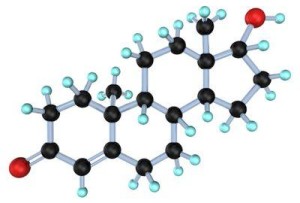Share this post:
The Studies on Testosterone Replacement Therapy
 Testosterone replacement studies that recently made news and received ample attention were published in PLOS One in January 2014, JAMA in November 2013, and the NEJM in July 2010. The studies reported an increase in cardiac risks and higher rate of heart attacks in patients undergoing testosterone replacement therapy. The PLOS One study is the most recent of the studies mentioned above and gained national coverage in the New York Times.
Testosterone replacement studies that recently made news and received ample attention were published in PLOS One in January 2014, JAMA in November 2013, and the NEJM in July 2010. The studies reported an increase in cardiac risks and higher rate of heart attacks in patients undergoing testosterone replacement therapy. The PLOS One study is the most recent of the studies mentioned above and gained national coverage in the New York Times.
After reading these recent studies, one might reconsider undergoing testosterone replacement therapy. Then why is testosterone replacement therapy continuing to be a popular treatment option, and why do experts in restorative medicine proclaim it to be safe and effective?
Published Expert Responses
To answer, let us first look at what our colleagues in the field have to say. Dr Neal Rouzier, a top expert in the field of hormone replacement therapy, shares his thoughts regarding the JAMA study. Rouzier states, “that the study was observational and retrospective in nature, which raises several issues. As the authors themselves state, this type of a study is prone to biases and cannot prove causation. More studies are needed to make up for the flaw and conclusions should be based on a trend of studies, not just one study alone. That is crucial since a vast majority of studies in the last decade have shown opposite outcomes and benefits of testosterone replacement – either no effect or protection against heart attacks.” Dr Rouzier further notes on the tendency of all people – “we tend to prioritize new studies and reject older ones – regardless of methodology used.”
Next, Josh Trutt MD, an active member of the Age Management Medicine Group and the American Academy of Anti-Aging Medicine, responded promptly to the New York Times article quoting the PLOS study. Dr Trutt states that NYT focuses on “a weak observational study” instead of looking into more grounded studies like the one published in JAHA on December 2013. In the JAHA article, researchers state that “normal testosterone levels play an important role in maintaining cardiovascular health, and testosterone replacement therapy in men with hypogonadism improves obesity, Type 2 Diabetes, myocardial ischemia [angina], exercise capacity, and [improves abnormal QT intervals on EKG].” Moreover, NYT did not grant much attention to some of the most important take-aways of the PLOS One study – namely that testosterone replacement helps reduce body fat and improve metabolism. The two factors are highly effective in preventing heart disease. Every patient prior to undergoing testosterone treatment should have a careful evaluation and be monitored closely during the course of therapy. Testosterone therapy is not for everyone, but leaving out this tool and waiting until testosterone levels become far too low can have irreversible effects.
Where ThriveMD Stands
The studies were not only poorly designed, but more importantly they were poorly interpreted. There have been numerous well designed, evidenced based studies that firmly support the use of testosterone replacement therapy and the optimization of hormonal levels. We shouldn’t ignore all the positive testosterone health benefits that have been well proven in prior studies. We will continue to manage our patients with careful attention to their medical history and laboratory serum hormone levels. ThriveMD strongly believes in testosterone optimization to reduce cardiovascular risk, improve energy, mood, and libido as well as decrease the risk of dementia and osteoporosis.
Is Testosterone Replacement Therapy Right For Me?
At ThriveMD, the treatment is carried out in the following steps:
- Evaluation
- Blood draw for laboratory level
- Discussion with patient
- Treatment decision
- Followup labs to optimize levels
- Ongoing consultations
To hear an expert opinion on the specific treatment that will best benefit you, or to learn more about testosterone replacement therapy, be sure to contact us.
*Individual patient results may vary. Contact us today to find out if testosterone replacement therapy may be able to help you.


